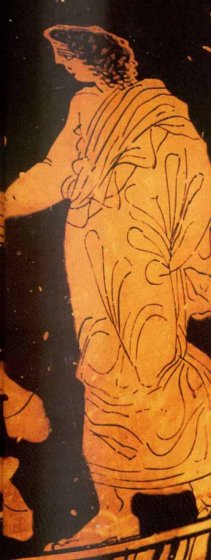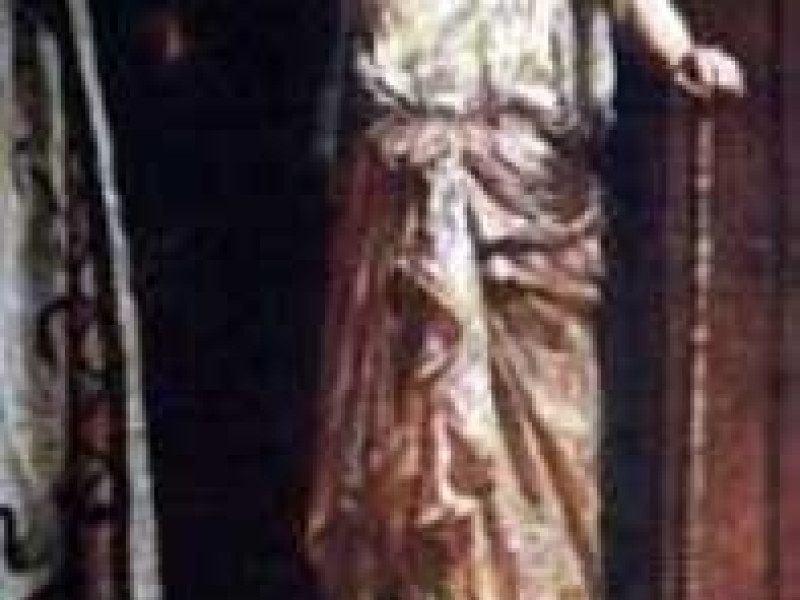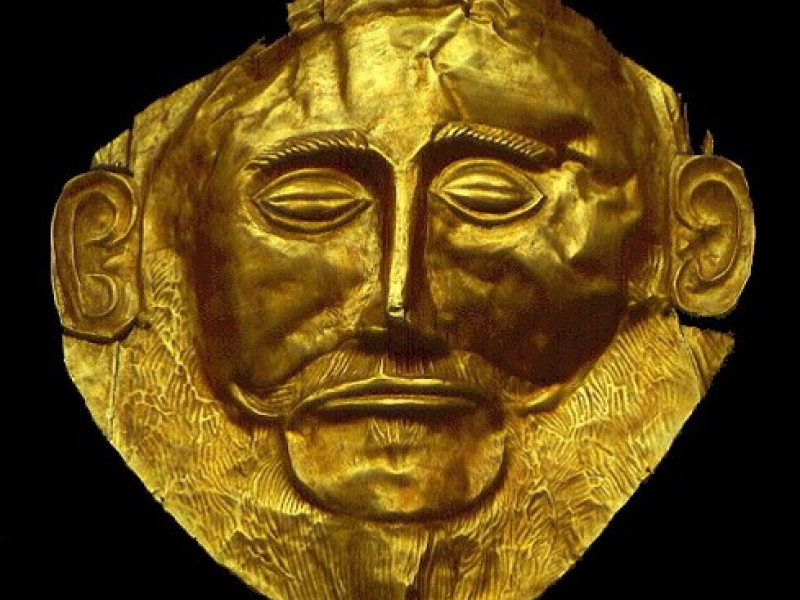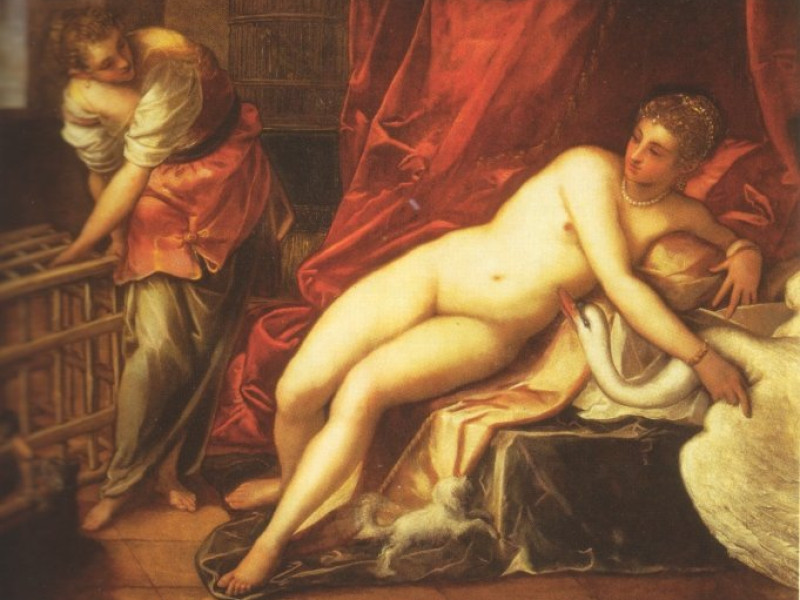Pelops
Pelops (Πñλοψ) was the son of Tantalus and brother of Niobe.
His father had killed him and served his flesh to the gods, hoping to fool the gods. The gods punished Tantalus and restored Pelops to life. Demeter, who had eaten part of Pelops' shoulder blade, replaced it with ivory shaped like his shoulder blade.
Like Ganymede, son of Tros, king of Troy, Tantalus' son was taken from home by the sea god Poseidon, who desired Pelops so much that he took the youth to Olympus in his golden chariot.
When Pelops reached manhood, he heard that King Oenomaüs (Oenomaus) of Pisa, the son of Ares and Asterope, had challenged several suitors to a chariot race, offering his daughter Hippodaemia's hand in marriage as the prize. However, any suitor who lost the race against the king would also forfeit his life. Oenomaüs had received a pair of swift horses from the war god. The proof of how swift the horses were was that the spectators could count the number of headless bodies that littered the race track.
When Pelops was restored to life, he became a beloved of Poseidon because of his beauty. According to Apollodorus, Poseidon gave him a winged chariot that could be driven across the sea without ever wetting its axles. But according to Pindar, the pair of horses were winged; the chariot itself was made out of gold.
Pelops went to Pisa and decided to bribe the king's charioteer, Myrtilus, into sabotaging Oenomaüs' chariot. The king was killed as the axle of his wheel broke, dragging the king to his death. Pelops won the race and married Hippodaemia.
Pindar (and other early writers) said that it was Poseidon's gift which won the race, not the treachery. The earliest mention of Myrtilus' treachery is found in Pherecydes in the 5th century BC. Pindar wrote that Poseidon gave him winged horses and a chariot of gold, but Apolldorus wrote that Pelops received a winged chariot.
When Myrtilus sought his rewards for helping Pelops to win the race, Pelops flung him out of the chariot, off the cliff overlooking the sea. Dying, Myrtilus cursed him and his family for his treachery. The sea he drowned in was named after him, the Sea of Myrto.
A slightly different version from Apollodorus, says that Myrtilus had tried to rape Hippodaemia, when Pelops went to fetch a drink from a small stream. Upon hearing a cry from his new wife, Pelops angrily threw Myttilus into the Myrtoan Sea. Myrtilus cursed Pelops as he fell.
To atone for the murder, the smith-god Hephaestus purified him. Myrtilus was the son of Hermes, so fearing reprisal from the god, Pelops set out to appease Hermes by instituting the god's worship in the Peloponnese. Pelops also erected a burial mound near the race-course at the Olympia. It was said that Myrtilus' ghost frequently spooked the horses at the races during the Olympic Games. Hermes may have placed his son in the sky as the constellation of the Charioteer.
Pelops became one of the most powerful kings of his time. Pelops conquered Elis, Achaea and Arcadia, and renamed the entire peninsula from Apia to Peloponnesus or Peloponnese.
Pelops and Hippodaemia had many children. His daughters, Astydameia, Anaxo, Nicippe and Lysidice all married the sons of Perseus, king of Tiryns and Mycenae. His sons Pittheus and Troezen ruled in Troezen, while Alcathous succeeded Megareus in Megara. His sons Atreus and Thyestes ruled Midea in Argolis, until Eurystheus died.
Pelops also had an illegitimate son named Chrysippus by the nymph Astyoche or Axioche, daughter of Danaüs. It was said that Hippodaemia was jealous because of Pelops' love and attention to Chrysippus, instead of their sons. She urged Atreus and Thyestes to murder her step-son.
A different version says that Laius, king of Thebes, abducted Chrysippus. Laius had fallen in love with the young boy. The Theban king abducted and raped Chrysippus. In shame of the rape, Chrysippus killed himself by falling upon a sword. Pelops cursed Laius, and that led to the Theban king's death.
Related Information
Name
Pelops, Πñλοψ.
Eponym of Peloponnesus.
Source
The Odyssey, written by Homer.
The Great Eoiae was possibly written by Hesiod.
Nostoi ("The Returns") was part of the Epic Cycle.
Fabulae, written by Hyginus.
Olympian I was written by Pindar.
Description of Greece was written by Pausanias.
Library of History was written by Diodorus Siculus.
By Jimmy Joe





